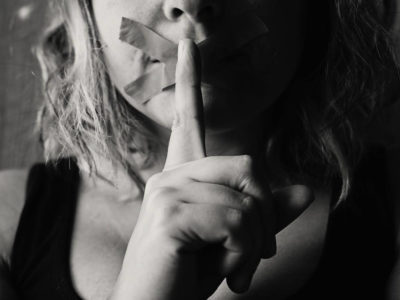When you think of the idea of slavery you think of the past—maybe what you covered in high school history. You may believe that now all people are free. Hate to break it to you, but unfortunately many are not. The issue of human trafficking continues to happen worldwide with an estimated 20 million slaves worldwide. In the United States alone, human trafficking rose 35.7 percent in 2016. Yikes.
WHAT IS HUMAN TRAFFICKING?

Human trafficking exploits people and involves the use of force, fraud or coercion to obtain some type of labor or commercial sex act. Think of it as modern day slavery. Existing locally, nationally and globally, victims are of every age, race, gender and nationality. The industry generates billions of dollars worth of profits per year and comes after drug trafficking as the most profitable form of transnational crime. Victims work in legitimate and illegitimate labor industries such as restaurants, hotels, sweat shops, massage parlors and agriculture.
CHECK OUT 10 HUMAN TRAFFICKING ORGANIZATIONS FIGHTING AGAINST EXPLOITATION.
1. All Walks – Arizona State University
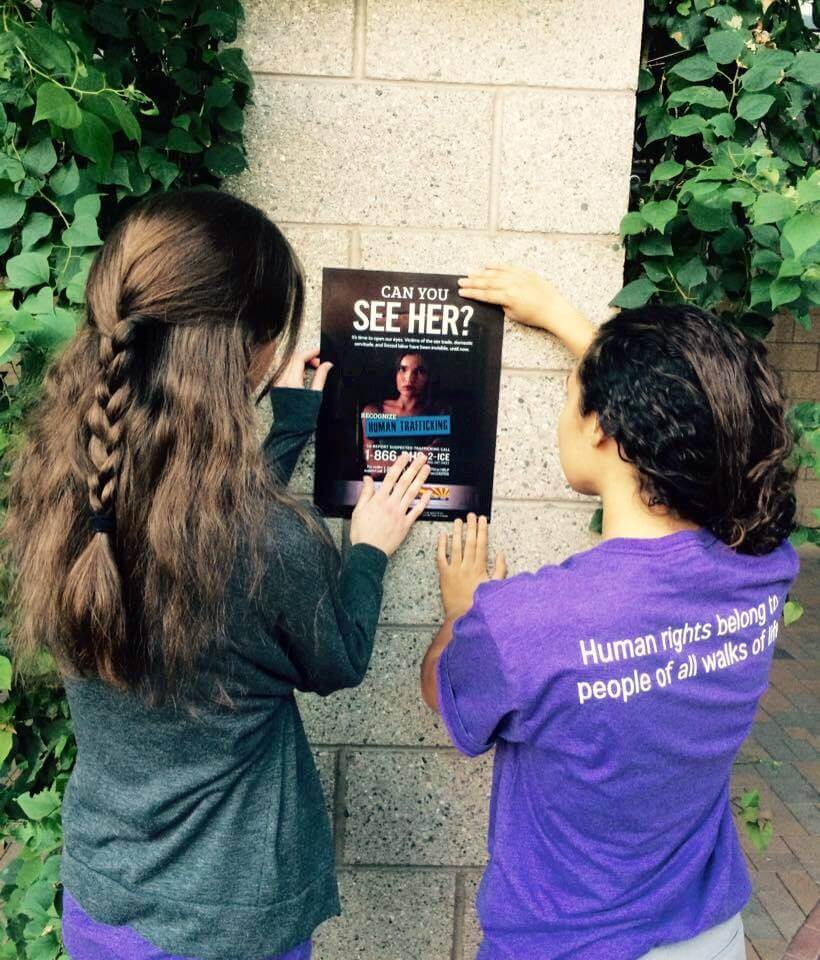
All Walks’s mission to end human trafficking begins on local college campuses around the country. They educate students in a peer-to-peer network on how to protect themselves and their peers. All Walks also sheds light that human trafficking can happen to any life and it takes many to help end the problem. For instance, at Arizona State University, they get the message across to people who may be unaware by playing PSAs at sporting events, screening documentaries and partnering with the McCain Institute. According to Rachel Geiser, president of All Walk’s ASU Chapter and Nonprofit Liaison, the facts surprise most people, and it doesn’t occur to them that human trafficking actually happens in Arizona. “Last year we did a demonstration where we gave out free lemonade from a cooler but it was actually water which they didn’t notice until after drinking it. It was mostly to demonstrate how isn’t how it appears,” said Geiser.
2. Polaris Project

Named after the North Star that led the slaves North along the Underground Railroad, the Polaris Project continues to guide victims today. They do it all, helping people from all walks of life and all forms of trafficking, including males, females, transgender people, children and immigrants. To connect more easily, the organization launched the Global Human Trafficking Hotline Network and BeFree Textline, which assists in connecting victims to resources. The lines also take in anonymous tips to help those in need as well. They also offer a range of internship programs for students interested in combatting the issues. From working with the hotline to the operations of a nonprofit organization, getting involved will help you develop those leadership skills and increase your knowledge when it comes to teaching others how to fight against human trafficking.
3. UAlbany Students Stopping the Trafficking and Exploitation of People
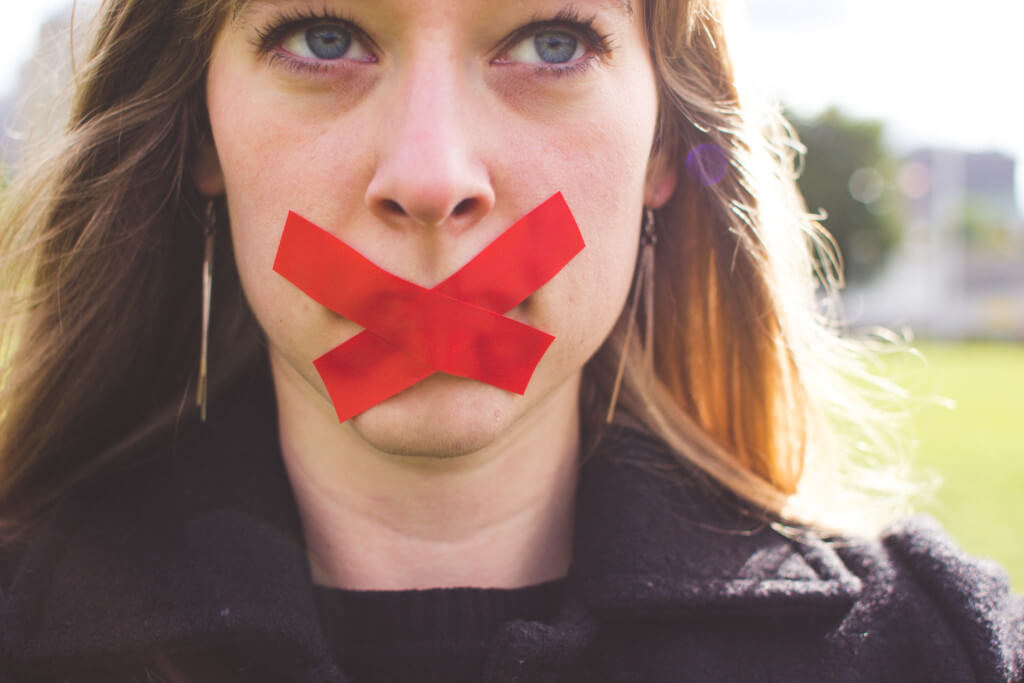
This org works to raise awareness of the prevalence and closeness to home and brainstorm ways to assist victims. The members teach the public through screenings of films, such as Salt, a movie about a young girl being trafficked from Nepal to a brothel in India, and fundraisers to raise money for women and children who live in safe houses. SSTEP even had a hand in changing New York legislation. Angel Warner, Human Rights Liaison for SSTEP, worked with an assembly member to draft a petition to change a law dating back to 1929 that allowed for children to get married at the age of 14 with parental permission. In June 2017, that age was raised to 18. SSTEP sponsored the petition and received signatures, which was sent to the State Senate and passed into law. “That was a project we are very proud of,” said president Ali Hansen. “We were able to do all of this our very first semester as group and are looking forward to doing more and shining a light on these issues.”
4. Students Against Human Trafficking – University of Pennsylvania

Human trafficking is a $150 billion dollar industry, and students at the University of Pennsylvania want to make facts like this known to all students on campus. SAHT advocates for survivors by informing their community that after someone gets out of the industry they deal with psychological dilemmas that hinders change, even if they begin to have a life again. According to the U.S. Department of Health & Human Services, many victims suffer from post-traumatic stress disorder, including recurring nightmares, loss of interest in everyday activities and a feeling of not having a future. To learn more, the organization holds on campus discussions with professionals, like mental health nurses with experience assisting victims of human trafficking, to put forth the most accurate information.
5. The A21 Campaign
They call themselves “The New Abolitionists.” This nonprofit is determined for every person worldwide to be free. With locations in 11 countries such as Australia or the Ukraine, they take action at all levels of the issue, beginning by reaching out through student engagement events. They even tap into the high school crowd with their Bodies Are Not Commodities curriculum, where schools can purchase multimedia guides that are interactive and align with education standards. The rescuing phase of the work trains first responders, law enforcement and transportation authorities to identify slavery and help those in need. They then take their work a step forward and help the victims’ prosecution and represent them in court. A21 even has events like Walk for Freedom, a fundraising campaign. From the communication field to education advocacy and supporter relations, they offer a niche in all aspects of the organization to easily become involved.
6. GoodWeave
From your beloved iPhone to your favorite fuzzy sweater, many of our products are made overseas. But did you know that internationally, often children are the ones sacrificing their childhood and education to produce goods? This non-profit tries to put an end to childhood labor, in particular in the carpet manufacturing industry. They provide a certification program that allows companies that pass inspection to attach a logo certifying that their product is made without child labor. You can find rugs without child labor available at some of your favorite stores like Target and Macy’s. If you’re looking to get involved, they offer internship opportunities in the state’s capital as well as many open employment positions.
7. Tigers Against Human Trafficking – East Central University

Located in Oklahoma, Tigers Against Human Trafficking has a lot on their hands to let students on their campus aware of trafficking in the state. That’s because in Oklahoma, sex and labor trafficking is very common, with many of the cases taking place in spa businesses and restaurants. The sex trafficking industry goes far beyond selling people to people but can occur in the most normal businesses. TAHT connects with organizations like the Polaris Project and The Dragonfly Home, a local that makes sure victims receive care and guidance, to help raise funds. You’ll find the organization’s advocates on campus selling everything from baked goods to candy to help raise awareness.
8. Stop Trafficking Of Persons – California State University, Chico
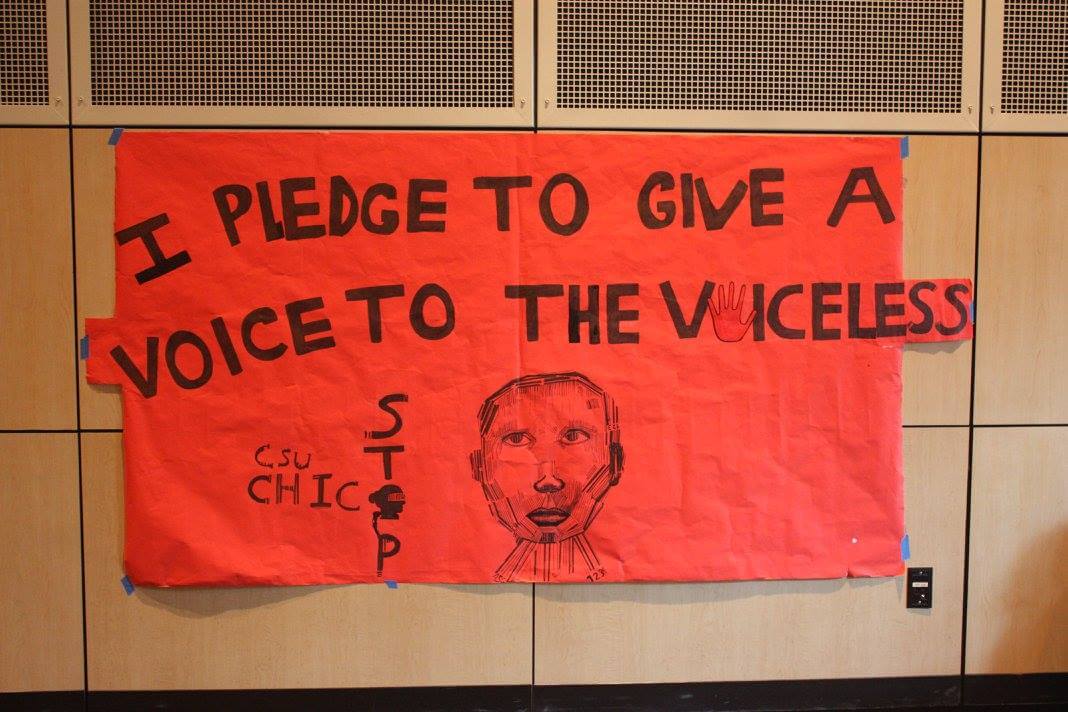
Stop Trafficking Of Persons, STOP, is a grassroots programs on the path of creating a community. With everything from concerts to activist walks, this organizations offers many ways for locals to become involved and make a difference. They often invite survivors who have gone on to become advocates to speak at the open events as a way for others to see the issue from a more in-depth and personal way. They also hold an annual awareness week, and recently also had a panel with local FBI to connect the community and law enforcement with ways in which to combat the issue. What better way to learn about how to fight back than from those with the most knowledge?
9. Anti-Human-Trafficking Club – Brigham Young University

BYU’s human trafficking club focuses on three parts to bring awareness to the issue in Utah: education, advocacy and fundraising. This group organizes events like cleaning up the campus football stadium to raise funds and awareness locally. By getting more students involved, it works with coordinating dedicated students with larger human trafficking organizations so they have access to volunteer and internship opportunities on a much bigger scale. The Anti-Human-Trafficking Club also has informational sessions with professionals who know the industry inside and out. Examples include Mary Ellis, the current Statewide Information and Analysis Center’s (SIAC) Human Trafficking Intelligence Analyst, who gave students facts from her work analyzing human trafficking information. According to president Jacob Player, we need to understand human trafficking if we want to stop it. “It is especially important for college students to understand because the important formative experiences they have now are going to shape society; experiences that can help shape what they do with their futures, and the changes that could be made that could ultimately eliminate human trafficking one day.”
10. Alachua County Coalition Against Human Trafficking
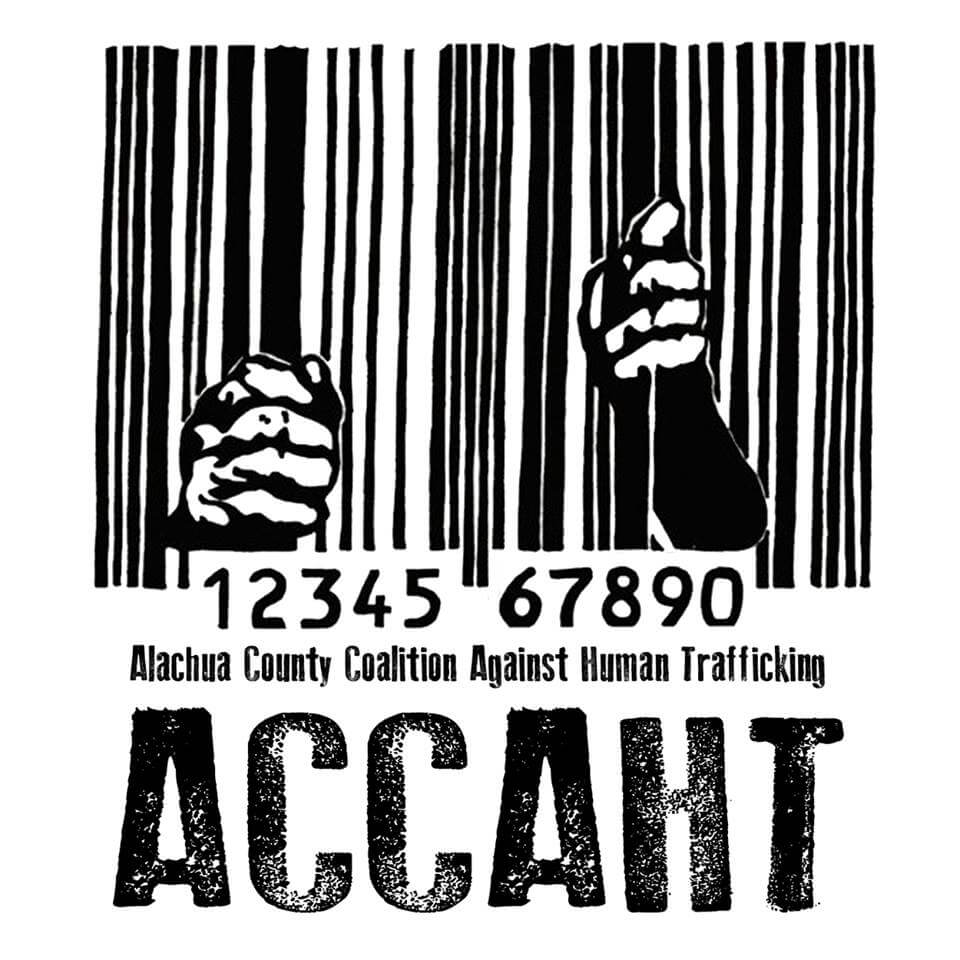
In this small college town, a sense of community continues to inspire the work done at the Alachua County Coalition Against Human Trafficking. Four committees form the basis of addressing the specific problems related trafficking: victim services and advocacy, criminal justice, awareness and education. This coalition brings the issue back to the local level, letting the community know sex trafficking happens in their own backyard. They hold quarterly workshops for the public and law enforcement, to ultimately help save more children. “We train people so they’re able to see and be able to report it. We see it from an economics point of view, the more the demand increases it leads to a supply,” said Richard Tovar, president of the Alachua County Coalition Against Human Trafficking.
HOW TO GET INVOLVED

“I wish this issue will go away, but there’s always going to be someone who wants to exploit someone else,” Tovar said. “But what we can do is minimize it, we can fight it and continue to fight it until it’s completely unacceptable to exploit anybody.” The first step? Become educated on the issue. Know that anyone can be affected. Keep in mind that many trafficking victims end up unaware on how to get out let alone survive afterward.
We need to raise awareness, advocate for better laws and enforcement and continue to grow and provide resources and programs for victims. Let your local politicians know that you care about combating human trafficking in your community, vote, attend town meetings and ask what they are doing to address this issue. You can also fight by buying from companies that have transparent and slave-free supply chains, volunteering for or donating to organizations fighting trafficking.

